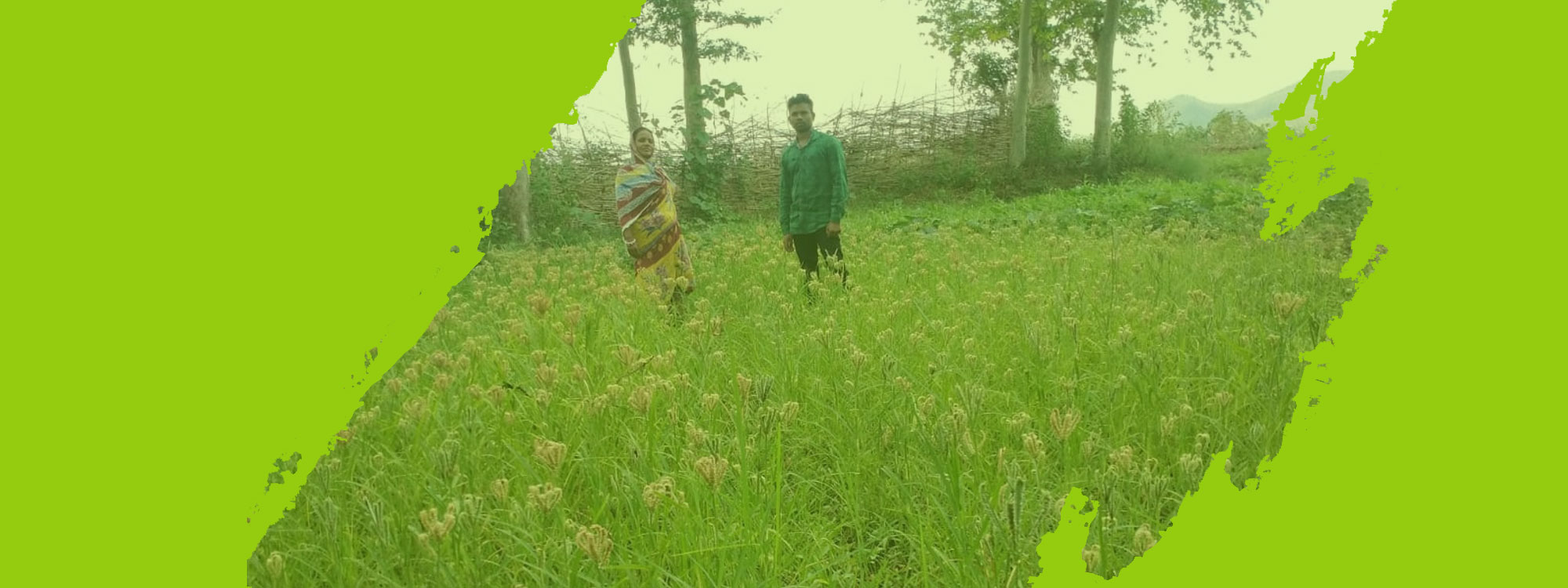
Promotion Of
Minor Millets

Achievements related Organic Farming
CIRTD has over 18 years of experience on working with tribal communities. It has gained knowledge and grassroots level experience in livelihood promotion, mainly, related to farming through the activities on capacity building, networking, project/ program planning, implementation, monitoring and evaluation. It has build up good rapport with people of the targeted communities and familiar with their socio economic issues, problems and needs through participatory processes of study, problems analysis and addressing the prioritized needs.
- At first, it is realized that majority of the people of targeted tribal communities have no record of rights on land, which they had been using for many years for growing food crops and eking out livelihood. Therefore, the first step of CIRTD was working with these people for their land rights or record of rights on the used land as per constitutional scheme of thing, i.e., Scheduled Tribes and Other Traditional Forest Dwellers (Recognition of Rights) Act of 2006 known as Forest Rights Act (FRA). As a result of continuous endeavor 3680 numbers of ST & SC households have got record of rights on land called ‘Shironama’.
- As follow up measures, handholding supports were provided to such beneficiaries under government schemes. Second major step was development of their land mostly located on undulated terrains by leveling, bounding and excavation of farm-ponds for conservation of soil & water and thereby increasing the productivity of land.
- Third essential programs/projects have been implemented for promotion of sustainable agriculture with emphasis on the use of organic inputs that are climate-resilient, locally-available and low-cost too. Since the year 2012 organic farming started with financial aid from Action Aid India, New Delhi covering 1000 Acres of land belonging to 1033 numbers of small & marginal farmers.
- With grant-in-aid from NABARD, RO, Bhubaneswar 94 nos. of Women’s Self Help Groups (WSHG) have been formed and capacitated to carry on income generation activities. Now, those WSHGs are getting supports under Odisha Livelihood Mission and CIRTD has been proving technical/ training support on organic farming to 50 of those WSHGs. Besides, Farmers’ Clubs and Village Development Plans have been formulated in 25 villages in Balisankara Block with support from NABARD and Action Aid India.
- Since 2017, under PKVY, 2750 Acres of land belonging to 2600 small & marginal farmers have covered for organic farming in 3 Blocks including Balisankara with grant-in-aid from Department of Agriculture of Government of India & that of Odisha. As a result of these programs/ projects, 2600 small & marginal farmers have started reaping food grains, pulses and vegetables, which are grown with organic inputs only.
- CIRTD motivated and promoted ‘Seed Savers’, who have preserved 80 varieties of indigenous paddy, 8 types of pulses, 7 types of oilseeds, 50 types of seasonal vegetables, tubers that are climate-resilient too. These advanced farmers are helped to participate in Exhibitions organized at District, State and Regional levels to sell and collect seeds.
- Since July 2018, under Odsha Millets Mission, activities have been started with 1000 numbers of tribal farmers, who have revived the production of finger millet by adopting improved methods of System of Millets Intensification, Line-Transplantation with the use of organic inputs only in Kutra and Rajgangpur Blocks. There is good harvest of such nutritious grains and up to 5000 numbers of tribal households will be included.
- For Certification under PGS-India, the process started with Documentation on Farmers’ farm history, farm plan, cluster maps, Khata & plot number of beneficiary farmers, GRS, baseline survey data, field maps have been produced and Application with these documents has been submitted through NCOF.
Objective, process & outcomes: With the objectives to increase food-security as well as nutritional status among women and children a special campaign was conducted in 22 villages, where no other agricultural project was implemented. First of all the needy women were educated about the idea of collective farming to identify common land and/or to take a plot of land on lease basis. Thus, 23 Groups of Women formed their collectives. They have given specific name to their respective collectives. They have planned on what types of crops of corns and vegetables to grow get more nutritious food and how to share the labour as well as agricultural produce. They have been trained on various methods of organic farming i.e., making organic manure, called Jiwamrit & Ghana Jiwamrit, Herbal Pesticide and organic disinfectant for treatment of seeds and seedlings saplings. Members of all the collectives have visited successful project on organic or natural farming.
As a result of such process of training, orientation, exposures and demo-shows there is an increase in knowledge, skill and practice on organic farming.
It has been recorded that there is increase in both the quantum of production as well as the productivity per acre of land through organic farming. It is worth mentioning that there is increase in the consumption of organically produced food grains and vegetables by the members of the women's collectives. In some collectives the women have got income after selling the surplus vegetables.
Important learning from such collective process of farming is those poorer women and even the landless women even can get benefit through collective endeavor. As per the terms and conditions even the landless women can get equal share. It is also observed that the very producers of vegetables keep aside certain portions for consumption at their respective household and then they go for selling the surplus in the market to get some additional income. Thus it is, observed that the nutrition status as well as the income status have been increased among the members of the Collectives.
Women initiate Collective farming to grow safe food crops with organic inputs

Leader of the women's group Philisita Topno (38 years) shares her experience on innovative form of collective farming and says, " I have only 0.4 Hecare of agricultural land on hilly area, which is too less to sustain livelihood for my family of 6 members including my husband Bijay Topno(50 years), my mother-in-law Beronika (72 years) two sons named Suraj (18 years); Sanjay (14 years) and one daughter Suneli ( 16years). All of us depend on agriculture as a livelihood.
Myself and three other neighboring women having very less agricultural land formed a group and approached another women having a little more land and she agreed to lease our 0.5 Hectare of her land to grow food crops and to join with us too.
ActionAis & CIRTD trained us in organic method of growing crops and supplied 6 types of seeds as per our plan and requisition.. Thus, we five women cultivated maize, cow-pea, cluster beans, ladies finger, ground-nut and pigeon pea in alternative rows in the same plot of land. Collectively, we carried on various steps of agricultural operations such as de-weeding, soil-working, applying cow-dung manure and urine as pesticide as well as fungicide. At the time of collective works we were sharing our life experience, story of sorrows and suffering also. We were amazed to see the luxuriant growth of our crops and bumper harvest. We shared the produce equally. As other members, I got sufficient safe and nutritious food for my family and additional income of INR 5000 or £ 50 (per family) by selling the surplus vegetables. Thanks for your supports."
Thus, 11 Groups of women do collective farming and there are 70 members, who contribute their time and labour equally and share the produce equally. Their family members get nutritious food.
